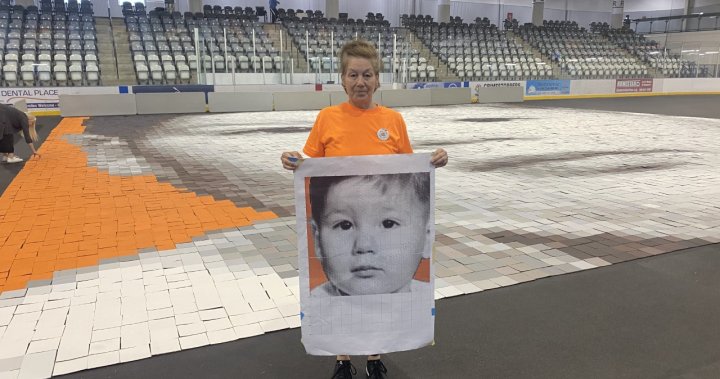 |
| Students at Quispamsis Middle School used paperboard squares to recreate a photo of Mindaver Lee, a survivor of the scoop in the 1960s. |
Minda Burley has only one photo of herself as a baby.
“It was published in the newspaper to adopt Metis’s child, and that’s how we found our family to adopt my biological sister Joan and me,” Burley said.
It was only recently that she discovered that she was part of the scoop of the 1960s. During this period, thousands of indigenous children were taken out of their homes and given to non-indigenous families.
“We can’t see”: British Columbia scoop survivors in the 1960s want action in housing school calculations
Burley’s photographs now show thousands of toddlers deprived of their culture, shedding light on the shadows of Canadian history.
Her story and the stories of many others related to the scoops of the 1960s have been the focus of studying at Quispamsis Middle School in this past grade.
On Friday, Grade 8 classes completed an art installation project at QPlex, Quispamsis, New Brunswick, that recreates Burley’s only toddler photo.
“It’s about pulling out all my brothers and sisters and listening to their stories and what they’ve experienced,” because much happened to them. It’s much worse than what everyone really wants to know, “Burley said.
“This will make them feel better and hopefully bring out what happened to us and everyone in the 1960s scoop.” SOURCE MORE PHOTOS






No comments:
Post a Comment
Please leave a comment.